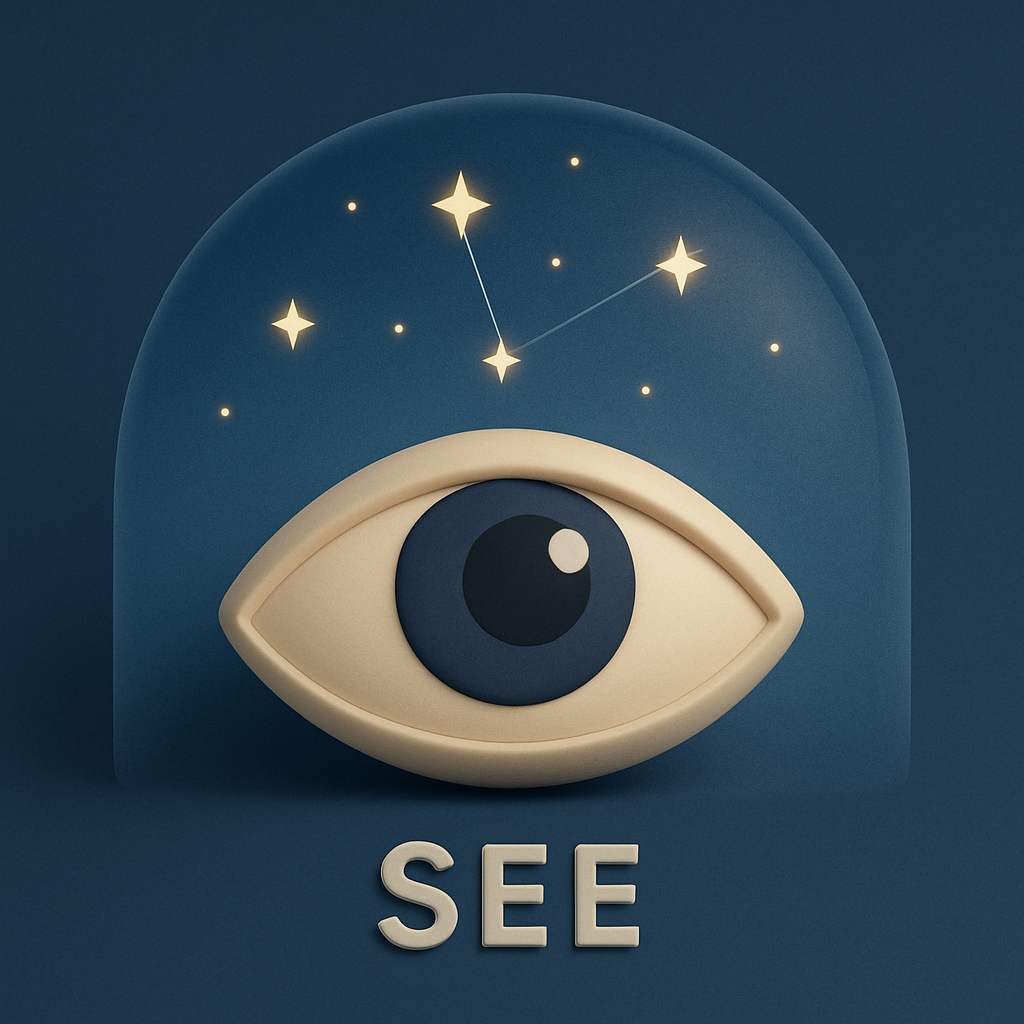See
Definition
The term "see" describes the act of perceiving with the eyes or understanding something mentally.
Parts of Speech
- Verb
- Noun
Pronunciation
American English
- IPA Pronunciation: /siː/
- Respelling: SEE
British English
- IPA Pronunciation: /siː/
- Respelling: SEE
Etymology
The word "see" originates from the Old English "seon," meaning "to perceive, look, or behold," derived from Proto-Germanic "sehwaną" and Proto-Indo-European "sekw-," meaning "to follow or observe."
Derivatives
- Seen (past participle)
- Seeing (present participle)
- Seer (noun)
- Unseen (adjective)
- Oversee (verb)
Synonyms
- Observe
- View
- Perceive
Antonyms
- Ignore
- Overlook
- None
Usage
The term "see" is used both literally, to describe visual perception, and figuratively, to indicate understanding or realization. For example: "I see the mountain in the distance," or "Now I see what you mean."
Related Terms
- Vision: The ability to see or a mental image.
- Perception: The way in which something is understood or interpreted.
- Insight: A clear understanding of a situation or concept.
Detailed Definitions
Verb
- To perceive with the eyes: Refers to the physical act of looking at something.
- Example: "I can see the stars clearly tonight."
- To understand or comprehend: Refers to mental recognition or awareness.
- Example: "Do you see what I am trying to explain?"
- To visit or meet someone: Refers to an act of interaction or encounter.
- Example: "I will see my friend tomorrow."
Noun
- The jurisdiction of a bishop: Refers to the area or authority of a religious leader.
- Example: "The bishop governs his see with diligence."
see



🇨🇳 Mandarin
- 看 (kàn) - See, to visually perceive
- IPA: [kʰân]
- Respelling: khan
- 明白 (míngbái) - See, to understand
- IPA: [mǐŋpǎi]
- Respelling: ming-bai
🇮🇳 Hindi
- देखना (dekhnā) - See, to visually perceive
- IPA: [d̪eːkʱnaː]
- Respelling: dekh-naa
- समझना (samajhnā) - See, to understand
- IPA: [səmədʒʱnaː]
- Respelling: samajh-naa
🇪🇸 Spanish
- Ver - See, to visually perceive
- IPA: [beɾ]
- Respelling: ber
- Entender - See, to understand
- IPA: [ente̞n̪ˈde̞ɾ]
- Respelling: enten-der
🇫🇷 French
- Voir - See, to visually perceive
- IPA: [vwaʁ]
- Respelling: vwar
- Comprendre - See, to understand
- IPA: [kɔ̃pʁɑ̃dʁ]
- Respelling: com-pran-dr
🇦🇪 Modern Standard Arabic
- يرى (yarā) - See, to visually perceive
- IPA: [jaˈraː]
- Respelling: ya-raa
- يفهم (yafham) - See, to understand
- IPA: [jaˈfham]
- Respelling: ya-fham
🇧🇩 Bengali
- দেখা (dekha) - See, to visually perceive
- IPA: [d̪ekʰa]
- Respelling: dekha
- বুঝা (bujha) - See, to understand
- IPA: [budʒʱa]
- Respelling: bujha
🇷🇺 Russian
- видеть (videt') - See, to visually perceive
- IPA: [vʲɪˈdʲetʲ]
- Respelling: vi-dyet
- понимать (ponimat') - See, to understand
- IPA: [pənʲɪˈmatʲ]
- Respelling: po-ny-mat
🇵🇹 Portuguese
- Ver - See, to visually perceive
- IPA: [ˈveɾ]
- Respelling: ver
- Entender - See, to understand
- IPA: [ẽtẽˈdeɾ]
- Respelling: en-ten-der
🇮🇩 Indonesian
- Lihat - See, to visually perceive
- IPA: [liˈhat]
- Respelling: li-hat
- Mengerti - See, to understand
- IPA: [məˈŋerti]
- Respelling: me-ngerti
🇩🇪 German
- Sehen - See, to visually perceive
- IPA: [ˈzeːən]
- Respelling: ze-en
- Verstehen - See, to understand
- IPA: [fɛɐ̯ˈʃteːən]
- Respelling: fer-shte-en
🇯🇵 Japanese
- 見る (miru) - See, to visually perceive
- IPA: [miɾɯ̟β]
- Respelling: mi-ru
- 理解する (rikai suru) - See, to understand
- IPA: [ɾikai sɯɾɯ̟β]
- Respelling: ri-kai su-ru
🇻🇳 Vietnamese
- Nhìn - See, to visually perceive
- IPA: [ɲiŋm˧˧]
- Respelling: nyin
- Hiểu - See, to understand
- IPA: [hiəw˧˩˧]
- Respelling: hieu
🇰🇷 Korean
- 보다 (boda) - See, to visually perceive
- IPA: [bo.da]
- Respelling: bo-da
- 이해하다 (ihaehada) - See, to understand
- IPA: [i.hɛ.ha.da]
- Respelling: i-hae-ha-da
🇹🇷 Turkish
- Görmek - See, to visually perceive
- IPA: [ɟøɾˈmek]
- Respelling: gyor-mek
- Anlamak - See, to understand
- IPA: [anˈɫa.maɰ̃]
- Respelling: an-la-mak
🇵🇰 Urdu
- دیکھنا (dekhnā) - See, to visually perceive
- IPA: [d̪eːkʰnaː]
- Respelling: dekh-naa
- سمجھنا (samajhnā) - See, to understand
- IPA: [səmədʒʱnaː]
- Respelling: samajh-naa





